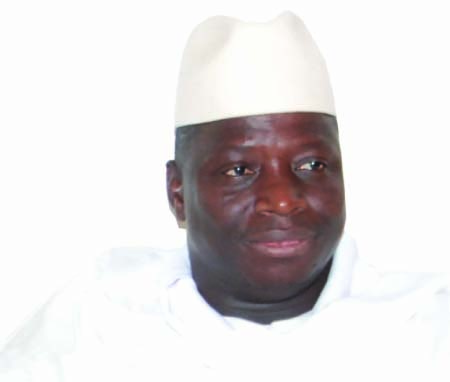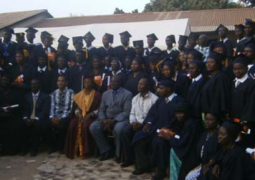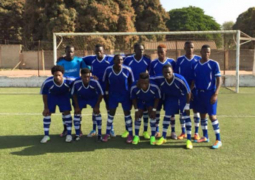
President Yahya Jammeh has reechoed his opposition to corruption, tribalism, and nepotism all virtues inimical to development and progress, calling on all Gambians to reject such vices for the betterment of the country.
In a televised address to mark the 18 years of the July 22nd Revolution, which unlike in previous years was this year’s marked on a low-key due to the holy month of Ramadan, the Gambian leader said his government will continue to create the necessary institutions and mechanisms to prevent such vices, and will do its utmost to promote responsible citizenry as enshrined in our constitution.
July 22nd, as the day has come to be called, was that fateful day in 1994 when some military officers led by the then Lieutenant Yahya A.J.J. Jammeh toppled the Progressive People’s Party (PPP) government of Sir Dawda Kairaba Jawara in a bloodless coup.
The day is seen by many as a moment of reflection on the achievements and shortcomings of the APRC government under the leadership of President Jammeh.
Jammeh noted that despite the tremendous gains made so far, a lot more still needs to be done.
“Therefore, I enjoin all patriotic Gambians regardless of political, religious or ethnic affiliation to join hands with my government in developing The Gambia for the benefit of all,” he said, noting that development is destined by the Almighty Allah, but implementing it is solely our responsibility.
According to him, as evidenced by the remarkable achievements made over the past 18 years, the desire to transform The Gambia into an economic superpower is realistic and possible.
To achieve this, he went on, we must unite as a people, work much harder and be guided by our shared spiritual values of honesty, patriotism and dedication to duty and, above all, with the fear of the Almighty Allah.
Highlighting some of his achievements, Jammeh stated that it is irrefutable that prior to the July 22nd Revolution, public infrastructure was virtually non-existent.
“In contrast, among a host of varied achievements, we can now boast of first class highways, numerous schools of all categories, a university, a world-class airport and three new major referral hospitals,” he added.
He expressed conviction that achieving the status of an economic superpower has to be grounded in strategic focus and intervention aimed at educating, empowering and mobilizing our human resource for implementation of our policy programmes and plans.
The guiding principle, he said, is that the destiny of this land is in the hands of the Gambian people.
Noting that within the past 18 years, tremendous efforts have been made in positively transforming the country in all spheres of development to the envy of many both in country and in the international community, Jammeh said the underlying intent for all these efforts is to build a solid foundation for an economic superpower status.
His government, he said, continues to devote itself to the never ending task of developing the human capital stock required for national development, particularly for the attainment of an economic superpower status.
Development, he added, must be initiated, scaled up and sustained by well equipped, well skilled, knowledgeable and patriotic citizenry.
“It is for this reason that my government accords a top priority to education, leading not only to the establishment of numerous schools at the University of the
He revealed that infrastructure at the air and seaport will be improved, and while the generation and distribution of electric power will continue to be given special attention, the use of renewable energy will be encouraged to complement the conventional system.



